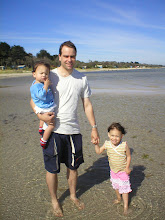The same concept is true for writing. While we only see the finished product, it is the pre-planning that has made the essay or report.
To write well you need to do the following:
- Develop the topic and break it down
- Develop the report with key areas based on the topic
- Break down the key areas further until you are at a level of one topic in each sub area
- Make sure all the key areas of the report are covered - eg introduction, background, literature review, methodology, results, discussion, conclusion, recommendations
- Proof read and make sure you haven't got an information that isn't required (less is more).
